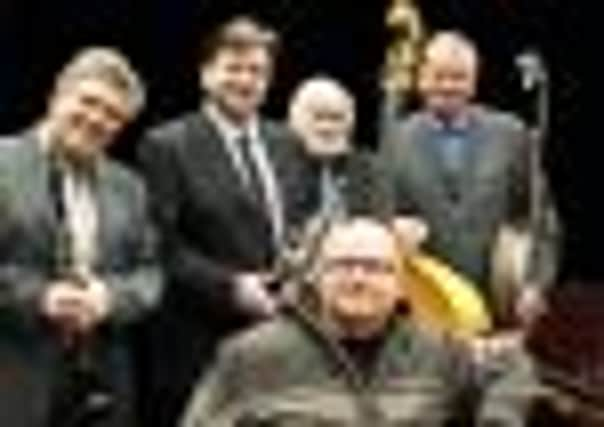Folk, jazz etc.: ‘It’s about the way people go away smiling and uplifted’


Unless, that is, you’re talking to the wide-ranging clarinettist and saxophonist John Burgess.
I was speaking to Burgess following the latest release from his regular playing partners, the Edinburgh-based Nova Scotia Jazz Band, The Beale Street Blues (C-Side Records). They’re joined on the album by the estimable pianist Brian Kellock in some exuberantly characterful yet respectful interpretations of classic material by the likes of Morton, Handy, Earl Hines and Duke Ellington.
Advertisement
Hide AdAdvertisement
Hide AdThe term “jazz” these days covers a broad church, within which Burgess can be found playing everything from free-improv to Latin jazz or folk fusion, so I asked him what it was which repeatedly drew him and his Nova Scotia bandmates back to what one might term the jazz lodestone of Dixieland.
“I really don’t know,” he admitted, “but I absolutely love these tunes. But also it’s about the way people go away smiling and uplifted. It’s the same when I play with the Peatbog Faeries. After modern jazz, people may go away with weighty things on their mind, but they don’t always go away energised. And for me there’s a great expulsion of something when I play those old tunes.”
Certainly there were smiles a-plenty in Edinburgh’s Whigham’s Wine cellar on Saturday as the band launched the album with Kellock, bringing a blast of the American deep south to this otherwise douce New Town watering hole.
Mike Daly’s full-toned cornet contrasted with Burgess’s grainy-voiced sax or whining clarinet, while Duncan Findlay’s banjo duelled with Kellock’s piano and double bassist Ken MacDonald held it all down with due solemnity. Kellock, one of the most highly regarded jazz pianists in the country, also points to the feel-good factor. “If it’s played well, any kind of music is great to hear live, but in some of the more modern things, the players can be a wee bit introspective, and maybe not always engage the audience.”
Kellock’s playing embraces mainstream and contemporary, but he loves the great old stride pianists such as Fats Waller, “and what we’re playing here isn’t too far from that.”
Mind you, he adds, “some of these classic arrangements can be quite complicated, if you don’t know them, so it’s been quite a learning curve for me.” Not too steep a curve, one suspects, listening to him romping with apparent relish through Jelly Roll Morton’s Kansas City Stomp or Edgar Dowell’s That Da Da Strain.
Burgess, too, is aware that this good-time music poses its own challenges, pointing to the aforementioned That Da Da Strain, on the Nova Scotia’s arrangement shorn of Mamie Medina’s lyrics: “The hard thing is coming up with something fresh yet meaningful on a simple progression like that. You can’t just run changes, you can’t just use flashy techniques, you’ve actually got to play something.”
Advertisement
Hide AdAdvertisement
Hide AdAnd play it they do, as can be heard on forthcoming gigs, including the Victoria Hall, Ballater, on 1 June; Inverurie Jazz Festival on 2-3 June; and Shetland Jazz festival on 8-9 June. For further information see novascotiajazzband.co.uk.
Meanwhile classic jazz fans should make a beeline for Edinburgh’s award-winning Jazz Bar on 30 May, when the New Phoenix Jazz Band, recently formed by bassist Jerry Forde, delivers its own take on the traditional jazz of the early 20th century.
Promising to “capture the energy and spirit of the time”, without succumbing to slavish recreation, they play arrangements by clarinettist Dick Lee, joined in the sextet by fellow-reedsman Martin Foster, Brian Robertson on cornet and vocals, Phil Adams on guitar and banjo and Ian WD Forde on drums (see newphoenixjazz.co.uk).